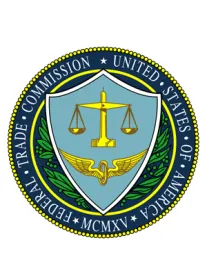The recent complaint highlights the importance of clearly and conspicuously disclosing material connections between advertisers and paid influencers, including in social media posts or in native ads.
The Federal Trade Commission (FTC) issued a proposed settlement this week with national retailer Lord & Taylor in connection with charges that it deceived consumers by compensating fashion “influencers” through free goods and payments for social media posts and native advertising[1] without disclosing to the public that the posts and articles were paid promotions. This case, and other recent FTC settlements, emphasize the importance of understanding and adhering to the FTC Guides Concerning the Use of Endorsements and Testimonials in Advertising.[2] The case also underscores the importance of the FTC’s recently announced Enforcement Policy on Native Advertising.[3]
Background
The case stems from Lord & Taylor’s 2015 campaign to promote its “Design Lab” clothing line. In addition to blog posts, photos, and video uploads, the campaign included social media endorsements by selected fashion “influencers” and native advertising editorials. Specifically, the influencers were each given a free dress from the Design Lab collection and were paid $1,000–$4,000 each to post photos of themselves wearing the dress to their social media accounts, along with certain specific tags (e.g., @lordandtaylor, #DesignLab). Each of the posts was preapproved by Lord & Taylor to ensure that the proper tags were used, but none were revised to include a disclosure that the influencers had been compensated for the post, and Lord & Taylor did not contractually require the influencers to make such disclosures. Further, Lord & Taylor entered into a contractual agreement with an online fashion magazine to post pictures of the dress to the magazine’s own social media account and run an editorial in the magazine about the new Design Lab collection. As with the influencers, both the social media posts and the content of the editorial were preapproved by Lord & Taylor, and no changes were made to disclose a paid endorsement relationship (and, again, Lord & Taylor did not require the endorsers contractually to make the disclosure).
Businesswise, the campaign was successful. The postings reached 11.4 million individual Instagram users. The specific dress that the social media posts displayed swiftly sold out. Legally, however, the campaign resulted in the FTC filing a complaint against Lord & Taylor under Section 5 of the FTC Act, alleging three separate violations. The FTC alleged that Lord & Taylor (1) misrepresented that the influencers’ social media posts were independent statements of impartial individuals, (2) failed to disclose the influencers’ material connection to Lord & Taylor, and (3) misrepresented that the fashion magazine’s post and editorial were independent statements of the magazine. To resolve the complaint, Lord & Taylor agreed to a settlement obligating it for a period of at least 20 years to, among other things, (1) refrain from misrepresenting that paid endorsers are independent users of Lord & Taylor products or ordinary consumers, (2) clearly and conspicuously disclose any material connections between endorsers and Lord & Taylor, and (3) refrain from misrepresenting that paid commercial advertising is a statement or opinion from an independent source. The settlement terms also expressly require Lord & Taylor to take affirmative steps to ensure compliance, including (1) obtaining a signed and dated statement from each future endorser obligating the endorsement to clearly and conspicuously disclose any material connection to Lord & Taylor and (2) implementing a system to monitor and review the representations and disclosures of endorsers. The settlement also requires Lord & Taylor to adhere to a comprehensive records-retention policy and submit to ongoing review by the FTC.
Analysis
This settlement is the first after the FTC issued its enforcement policy on native advertising, which highlights the importance that companies clearly and conspicuously disclose material relationships with endorsers regarding all types of advertising and promotions, particularly with respect to influencer social media campaigns and native advertising, where consumers may not be able to readily distinguish between paid advertisements and independent content. And, although this settlement is in the context of the retail clothing industry, the FTC Guides and the FTC’s enforcement policy addressing native advertisements apply across all industries.
The settlement is a reminder that companies should consider adopting, implementing, and regularly monitoring compliance with written policies that require transparency related to all types of endorsements, particularly those that appear online. Such policies should, at a minimum, require and ensure that all statements that endorsers make reflect their honest beliefs and that any material connection between a company and an endorser be disclosed, if those connections would not be obvious to the public. Companies have this responsibility even if a third-party intermediary is used to hire and interface with endorsers. Further, any contracts should require endorsers to disclose the fact that they are being compensated and adhere to the FTC’s Guides. Simple disclosure through a hashtag or disclosure noting the postings or content as “advertising” or “sponsored content” in most instances should suffice to accurately alert consumers to the nature of the posting or content and to avoid FTC scrutiny and action.
With this complaint against Lord & Taylor and the resulting settlement, the FTC underscored that transparency in advertising, particularly online, is of paramount importance.
___________________
[1] The FTC describes “native advertising” as advertising content that bears a similarity to the news, feature articles, product reviews, entertainment, and other material that surrounds it online.
[2] Read the Guides.





 />i
/>i
